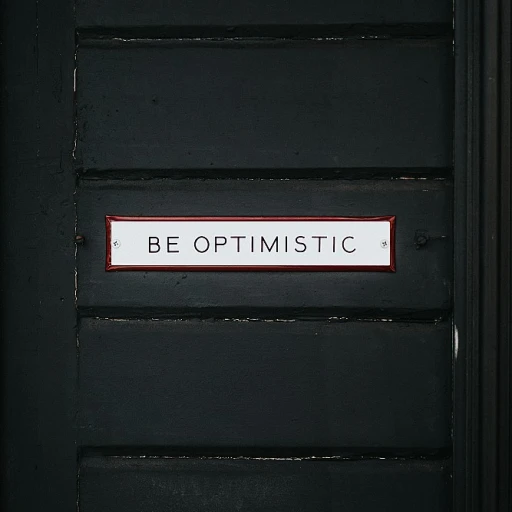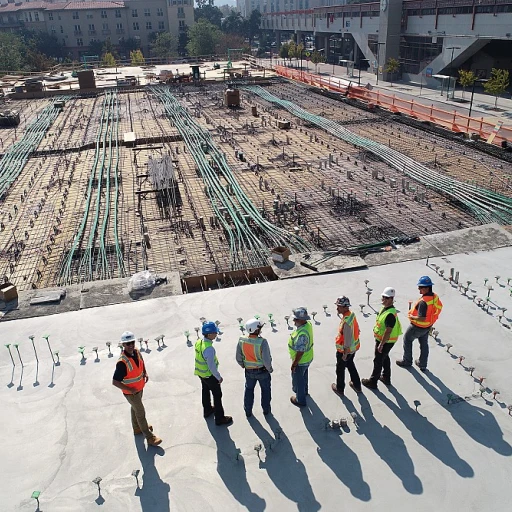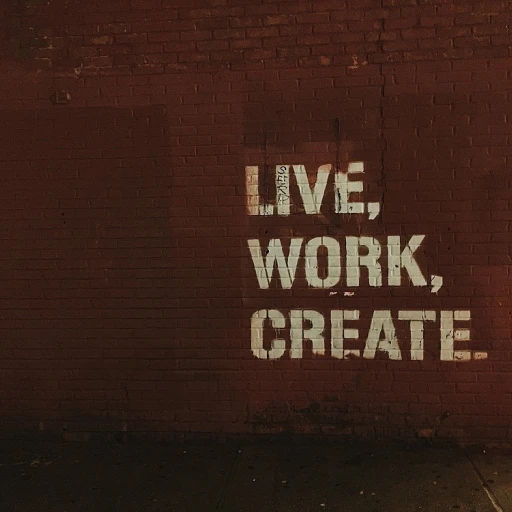Streamlining Recruitment Processes
Makes Recruiting Easier
Artificial intelligence is changing up recruitment and making it more efficient than ever before. It's no surprise HR professionals are thrilled with how technology can improve their daily operations. AI is helping businesses identify the right talent more quickly and accurately. Imagine browsing a database and having an intelligent system sort through candidate profiles, highlighting the best matches based on job descriptions, skills, and even personality.
By using AI for the hiring process, administrative tasks like sifting through thousands of resumes become less time-consuming. Companies are seeing the benefits through data driven approaches that make decision making smarter and faster. Of course, this isn't just about speeding things up but also about improving the quality of hire by harnessing the power of predictive analytics. Niagara Bottling's AI system for talent acquisition increased their hire quality by 80%, showing AI's prowess in refining recruitment processes (Source: Forbes).
Another significant advantage of AI is its ability to actively help in identifying those hidden gems - talents that might have been overlooked by a human eye. AI platforms can analyze intricate patterns in candidate data, meaning HR teams aren't just working hard, they're working smart. Plus, smarter recruiting practices lead directly into more diverse workforce management.
For small to medium-sized enterprises, this AI-driven recruitment will present opportunities to compete with big players in attracting talent. HR departments will find themselves with more time to focus on employee engagement and performance management.
Overall, combining AI in recruitment processes with the insights provided in
HR Automation, the future is very bright for harnessing technology to streamline and enhance human resources functions. It's a game changer for companies aiming to stay ahead in finding talent, optimizing employee experience, and improving team dynamics.
Personalizing Employee Experience
Customizing the Work Journey
Imagine a workday where your experience feels uniquely yours, thanks to AI. Forget the one-size-fits-all approach. Artificial intelligence allows organizations to mold individual experiences by understanding each employee’s needs and preferences. This tech works with data-driven insights, using operations like real-time employee engagement tracking to enrich daily work life.
Take Jane, a customer service representative. She's been confused about which training sessions would best benefit her role. Enter AI-driven employee experience platforms, which recommend courses tailored to enhance her job skills while aligning with her interests. This fosters her engagement and boosts her performance, making her learning experience more fulfilling.
Key Points:
- Real-time Feedback: Monitoring will help capture immediate performance insights, tailoring the employee journey to increase satisfaction.
- Employee Preferences: AI finds patterns within the data, offering personalized opportunities and experiences.
Curious how AI smooths this often bumpy path?
Enhancing Employee Onboarding with AI has some brilliant strategies.
Smoothing Workforce Management
AI is reshaping how businesses orchestrate workforce management, which is no small feat. By automating mundane administrative chores, human resources teams can focus on strategic tasks like talent management and enhancing workforce satisfaction. Predictive analytics become your new best friend, assessing and optimizing workforce deployment.
Consider Adam, a manager struggling with fluctuating team workloads. Without AI, balancing his team’s capacity was like trying to herd cats. With AI, he receives predictive insights and can make informed decisions to assign tasks efficiently, ensuring no one is overwhelmed or underutilized.
Key Points:
- Predictive Analysis: Predictive AI models proactively assess workload and resource requirements.
- Strategic Planning: Helps in devising employee schedules that optimize performance without causing burnout.
AI plays a substantial role here by not only refining operations but also boosting morale through fairer workload distribution.
Boosting Learning and Development
Leveraging AI in learning development equips employees to sharpen their skills with insightful and interactive training. Traditional performance reviews often feel like dusty old books, but AI introduces modern technology that revives these essential tools into something relatable and tech-savvy.
Meet Taylor, a young engineer eager to expand her skill set. AI-powered platforms craft personalized learning paths based on her interests and performance trends, offering interactive modules instead of tired old slide decks. As a result, Taylor’s job performance excels and her engagement elevates, benefiting not only her growth but the company’s future.
Key Points:
- Interactive Modules: AI makes learning sessions lively, driving engagement higher than dusty old slide decks.
- Performance Trends: Helps tailor the learning experience, by closely observing past performance and current skills.
The seamless integration of AI into learning strategies reveals a marked improvement across the board, helping employees like Taylor—who are eager to grow—find their rhythm and craft success stories.
Optimizing Workforce Management
Smoother Workforce Planning and People Management
Crafting a seamless operation of your workforce might feel like juggling a few too many tasks, right? Artificial intelligence is stepping in to lighten the load, making workforce management not just easier, but smarter too.
Picture this – AI tools adeptly analyzing employee data to help businesses optimize productivity. Imagine knowing exactly when your team reaches peak performance or when they need a breather – all in real time. It's like having a crystal ball for your team's performance management.
AI technology is here, turning a ton of raw data into valuable insights to tailor your talent management strategies. Predictive analytics, like a loyal sidekick, are here to assess employee engagement levels and even foresee when someone might consider moving on to greener pastures. This insight allows HR to act proactively rather than just reactively.
Decisions about allocating human capital have never been more data-driven. Now, more than ever, businesses have the ability to forecast future staffing needs, helping keep employee experience front and center. All of this means businesses don't just manage talent; they nurture it.
Keeping Tabs on Employee Well-Being
It's not all spreadsheets and data points. People come first, and AI’s role in tracking and aiding employee wellness is nothing short of transformative. By using machine learning algorithms, organizations can recognize signs of burnout, stress, or employee disengagement before they take root.
AI-driven HR solutions can recommend personalized learning development pathways and measure employee satisfaction, making performance reviews insightful rather than intimidating. Companies can use AI to boost employee engagement by aligning personal and professional growth, leading to happier, more productive teams.
By integrating AI into workforce management, businesses ensure their teams are looked after as individuals, not just numbers in a system.
Experience how these changes can drastically improve operations by checking out our informative article on
HR reporting advancements with AI.
Enhancing Learning and Development
Training and Growing Employees with AI
It's no secret that keeping your team sharp, skilled, and up-to-date with the latest knowledge is vital for any business. Artificial intelligence is taking the wheel in helping companies boost their training and development programs. Imagine if you will, machine learning dissecting massive loads of data in real time to highlight what your employees need to thrive. That's just one way AI is reshaping how we learn and grow professionally.
AI technologies can personalize the learning journey for each employee, curating content that aligns with individual capabilities and job descriptions. By leveraging AI to match learning modules with specific needs, businesses not only help employees grow, but also keep them engaged. In fact, personalized learning can improve employee performance and retention, proving that when folks feel invested in, they're more invested in their work.
Take employee engagement to another level by using predictive analytics to forecast skill gaps and design tailored training programs. This approach empowers workforce management teams to be proactive rather than reactive, ensuring employees are not just meeting their current job requirements but are ready for future challenges too.
Furthermore, AI-driven tools can streamline administrative tasks associated with training—such as tracking participation, measuring progress, and even conducting performance reviews. Administrative tasks that used to take days, can be reduced to a matter of minutes with the help of smart technology.
All this makes employee training more efficient, saving time and helping human resources focus on what really matters: nurturing talent. So, when you're considering how to enhance your team's performance management, think about the transformative power of AI—it's not just about tech, it's about the people behind the screens.
Ensuring Fairness and Compliance
Building Trust Through Fair Practices
Creating an environment where every employee feels valued isn't just a trend; it's essential. With artificial intelligence, we can help create fairness and compliance in processes like performance evaluations and hiring. AI algorithms can analyze performance data, ensuring that human judgment doesn’t overshadow facts. This technology dives into performance management, sorting through possible biases and bringing unbiased insights to the table.
Using data-driven decision-making, AI can predict employee performance trends over time. Such insights can help management teams make informed decisions about promotions, pay raises, and even talent acquisition strategies. When job descriptions are written by AI, they focus on the necessary skills, allowing applicants to be considered based on merit alone.
Moreover, because AI technology works with massive datasets, it recognizes patterns that humans might miss, contributing to fair practices. It ensures that employees are appraised based on their actual performance and job descriptions, not subjective views.
Real-time monitoring and feedback systems powered by AI, chatbots, and machine learning help employees understand their role and performance better, enabling continuous improvement. By ensuring that tasks associated with human resources are fair and transparent, AI fosters a workplace where employees trust that decisions are impartial and truly made in their best interest.
The presence of AI in human resources isn't just about automating tasks but about using predictive analytics to uphold organizational justice. This technology can shine a spotlight on areas where biases may lurk, and arm HR departments with tools to address them, ensuring fairness in all facets of employee handling.
Implementing AI-driven fairness doesn’t just benefit employees—it strengthens the organization overall, ensuring that employees and talents feel valued, boosting motivation, and contributing to a productive work environment.
Addressing Ethical Concerns and Challenges
Balancing Innovation with Responsibility
Integrating artificial intelligence in human resources is like opening a new chapter in HR management. It's about harnessing technology's power to make mundane tasks easier, use data-driven insights for smarter decision-making, and personalize employee experience. But we must tread carefully, ensuring fairness.
When you're using data to make evaluations on employee performance or predict the best fit for a job, it's essential to maintain an unbiased approach. Imagine the damage an unconscious bias can do when it sneaks into machine learning algorithms. Transparency in AI processes is a must, and that means being clear on how we're using employee data and what those generative algorithms are really doing.
We're also tasked with protecting privacy. A trust bridge needs to be formed between business managers, employees, and the AI technology. Be upfront about data collection methods, allowing employees to feel secure, knowing their personal and performance data isn't misused.
Legal Compliance doesn't take a backseat. Various regional laws dictate how business entities handle data, and AI systems should comply with these regulations to avoid stumbling into legal hassles. Employees deserve an extra layer of protection, like GDPR, which carefully watches over how human capital's data is used.
Ethical considerations extend beyond compliance. Is your workforce management aligned with ethical values when AI is involved? Are talent management decisions keeping individual employee experience in mind? These considerations may shape future policy.
In summary, while AI opens lots of doors for revolutionizing HR strategies, it's crucial to focus on ethical use. The stride towards efficiency shouldn't overshadow employee engagement values. Embrace AI, but do so responsibly, treating employee data with the respect it deserves.
Addressing these challenges head-on, and taking the time to understand and implement ethical practices, will lead to not just a more efficient HR system but one that upholds the dignity and trust of all employees.











